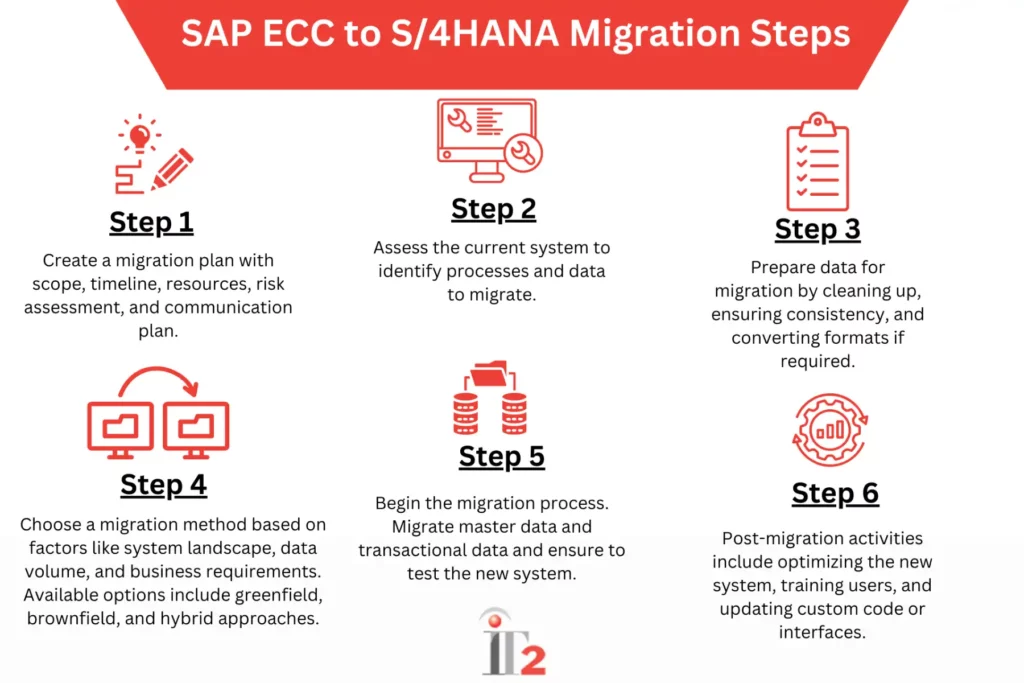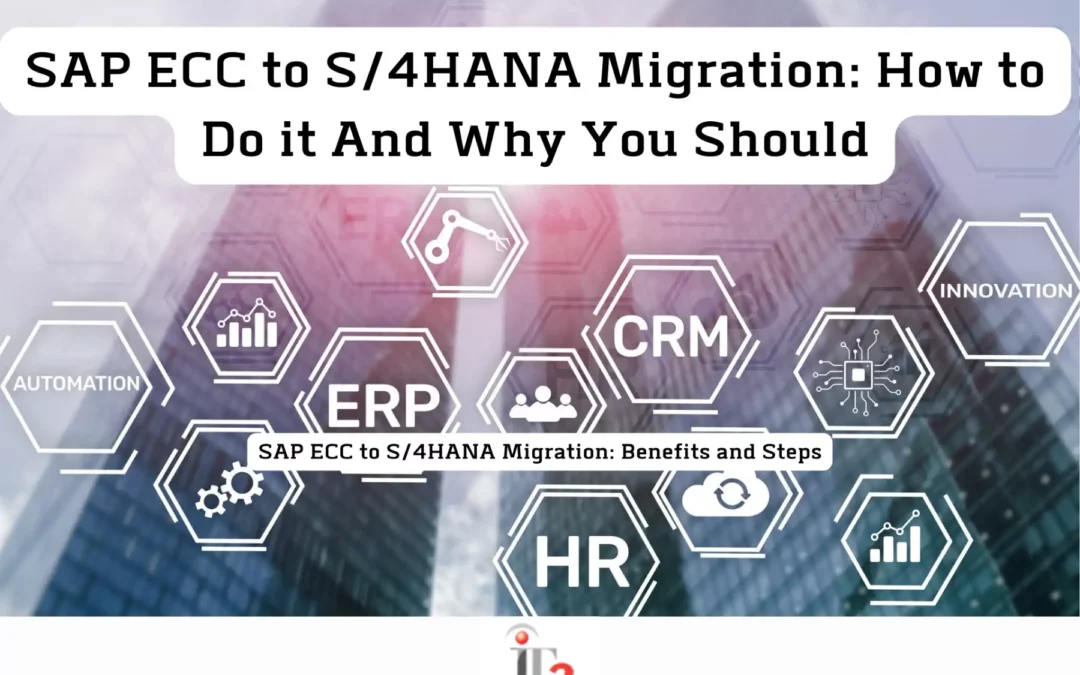SAP ECC to S/4HANA migration has become increasingly important. While SAP ECC has been a popular choice for businesses for many years, SAP S/4HANA offers advanced functionalities that make migration worth it. According to a recent IDC study, 18% of businesses have already migrated to S/4HANA, while 54% plan to do so within the next three years.
In this blog, we’ll explore the top 10 benefits of SAP ECC to S/4HANA migration, the steps involved in the process, and who can help with your migration project.
10 Benefits of SAP ECC to S/4HANA Migration
SAP ECC to S/4HANA database migration offers several benefits for businesses looking to improve their ERP system’s efficiency.
The top 10 benefits of this migration include:
1. Real-Time Analytics
S/4HANA’s in-memory database technology allows businesses to access real-time data for better decision-making. It helps in improving the efficiency of various business processes, as well as reducing the overall turnaround time.
2. Simplified Architecture
S/4HANA is built on a simplified data model, reducing the complexity of the system landscape. This makes it easier to maintain and customize the system according to the business’s requirements.
3. Improved User Experience
S/4HANA’s user interface is more intuitive and user-friendly than that of ECC. It provides a more personalized experience with a customizable dashboard, role-based access, and real-time reporting.
4. Enhanced Functionality
S/4HANA offers several new business functions that are not available in ECC. For example, the system has:
- Built-in predictive analytics capabilities
- The ability to automate manual processes
- Advanced inventory management functions
Don't Let An Outdated ERP System Hold Your Business Back
From data migration to post-migration support, iT Services 2 has you covered every step of the way.
Contact Us Now5. Reduced Total Cost of Ownership (TCO)
S/4HANA reduces TCO by simplifying the system landscape, optimizing hardware and software resources, and reducing maintenance costs.
6. Increased Flexibility
S/4HANA’s simplified architecture enables businesses to adapt quickly to changing market conditions and customer needs. It allows for more agile and flexible business processes, making it easier to stay competitive in today’s fast-paced business environment.
7. Improved Integration
S/4HANA’s open architecture allows for seamless integration with other business applications and systems. This enhances the overall efficiency of the business processes and provides a more comprehensive view of the organization’s operations.
8. Better Security
S/4HANA’s advanced security features protect your data and systems from internal and external threats. It includes role-based access controls, data encryption, and real-time monitoring, ensuring that your business is safe and secure.
9. Cutting-Edge AI Capabilities
S/4HANA’s AI capabilities enable businesses to automate routine tasks and decision-making processes. It can help:
- Reduce costs
- Improve operational efficiency
- Enhance overall customer experiences
10. Enhanced Financial Management
S/4HANA’s financial management capabilities provide real-time financial insights, enabling businesses to make better financial decisions.
It includes features such as:
- Cash management
- Financial planning and analysis
- Financial accounting and reporting
- And more
SAP ECC to S/4HANA Migration Steps
Migrating from SAP ECC to S/4HANA can seem like a daunting process, but with the right plan and approach, it can be a smooth transition. By following these steps, you can successfully migrate from SAP ECC to SAP S/4HANA and take advantage of its many benefits for your business:
1. Plan Your Migration
Before you begin the migration process, it is essential to create a plan that outlines the scope, timeline, and resources required for the migration. This plan should also include a risk assessment and a communication plan.
2. Assess Your Current System
The next step is to assess your current system to determine which business processes and functions need to be migrated to S/4HANA. This involves identifying the master data and transactional data that will need to be transferred.
3. Prepare Your Data
Once you’ve identified the data that you need to migrate to SAP S/4HANA, you’ll need to prepare it for the migration process. This includes cleaning up data, ensuring data consistency, and converting data formats if necessary.

4. Choose Your Migration Method
There are several migration methods available, including greenfield, brownfield, and hybrid approaches. The method you choose will depend on factors such as your current:
- Data volume
- System landscape
- Business requirements
5. Perform the Migration
Once you’ve chosen your migration method, you can begin the actual migration process. This involves converting the data model from ECC to S/4HANA, migrating master data and transactional data, and testing the new system to ensure it is working correctly.
6. Post-Migration Activities
Once the conversion to SAP S/4HANA is complete, you’ll need to perform post-migration activities, such as optimizing the new system, training users, and updating any custom code or interfaces.
| For more relevant information about our SAP services, visit our SAP Services. |
Master Your SAP ECC to S/4HANA Migration Today
Upgrading from SAP ECC to S/4HANA presents a unique opportunity for businesses to improve their overall efficiency, accelerate decision-making, and optimize operations while reducing the time and resources required to manage their systems.
Nonetheless, this process can be challenging and requires careful planning and execution.
To maximize the benefits of your S/4HANA conversion project and ensure a seamless migration experience, our team of SAP ERP experts is ready to provide end-to-end support and guidance to your business.
With their expertise and guidance, you can ensure a smooth transition to S/4HANA and take advantage of its full potential for your business.
Contact us today to learn more about our SAP consulting services and how we can help you with your SAP ECC to S/4HANA migration project.



